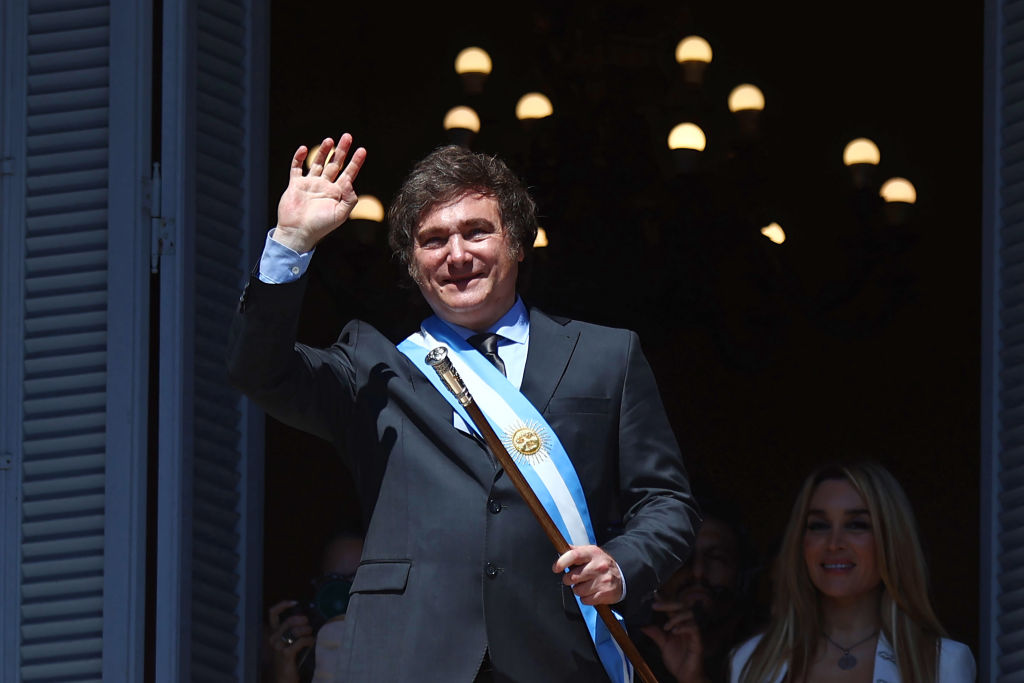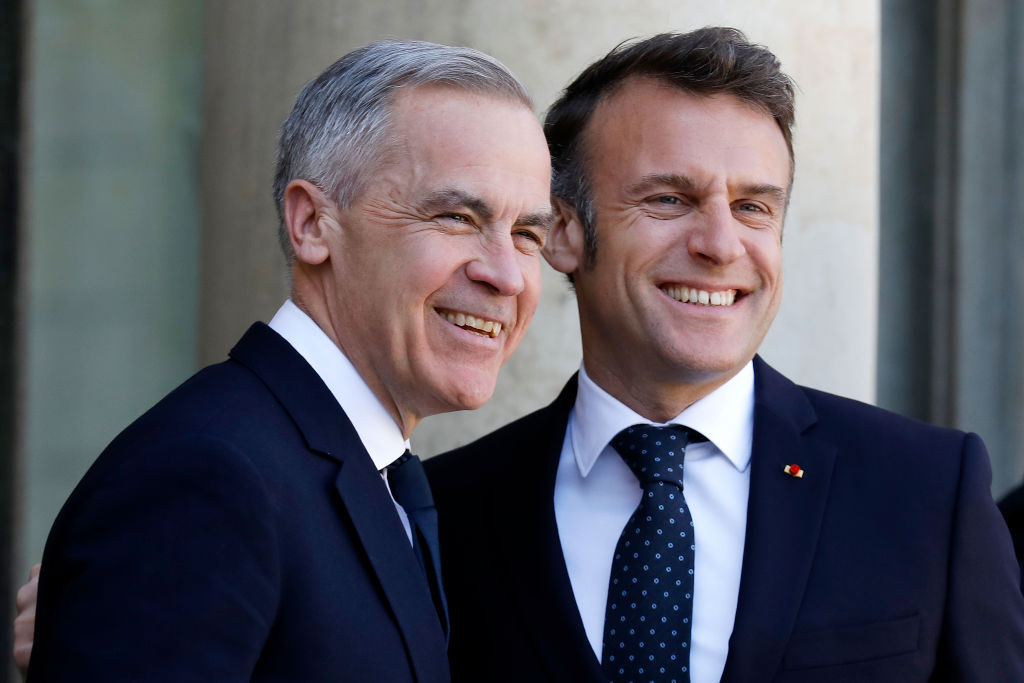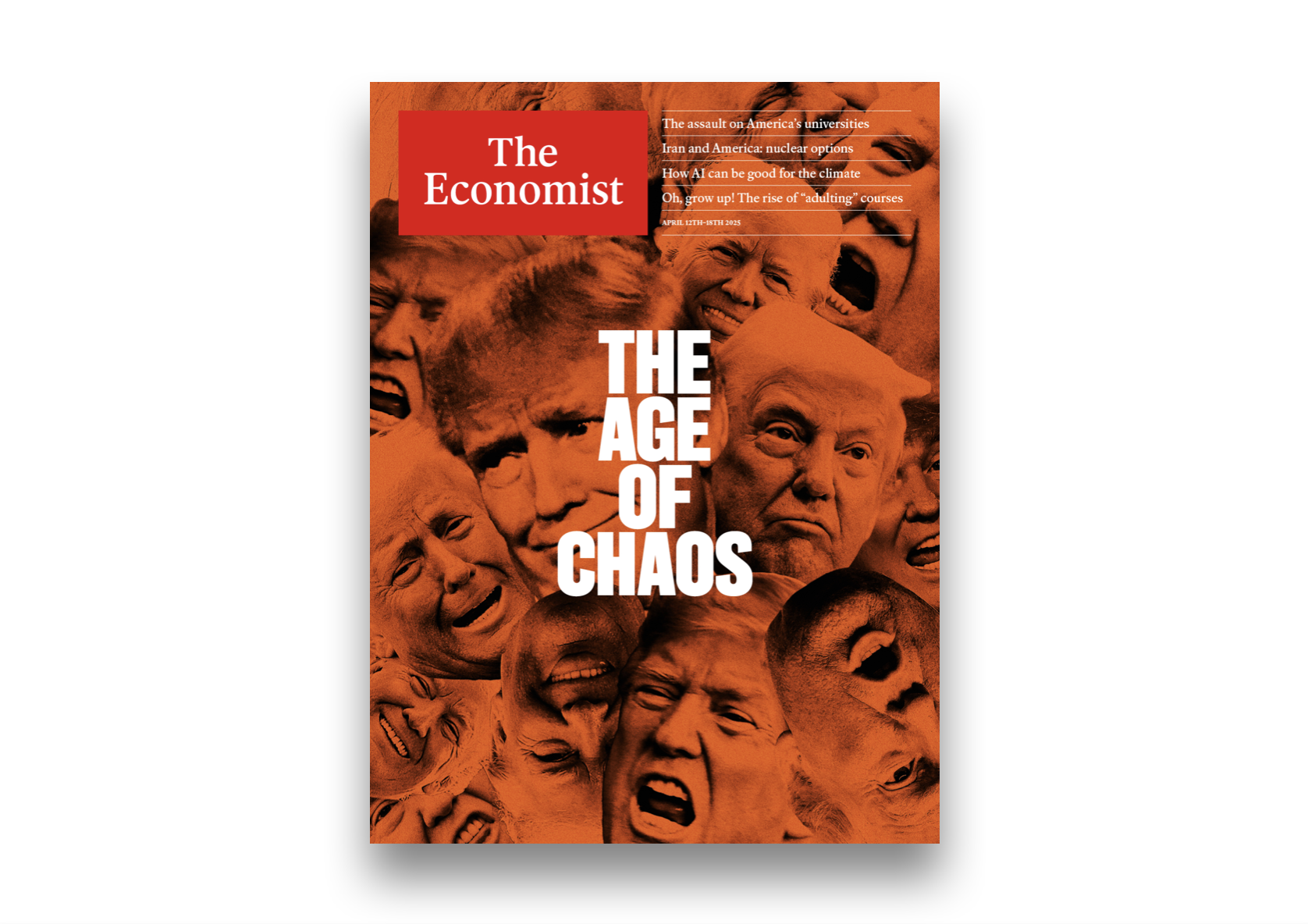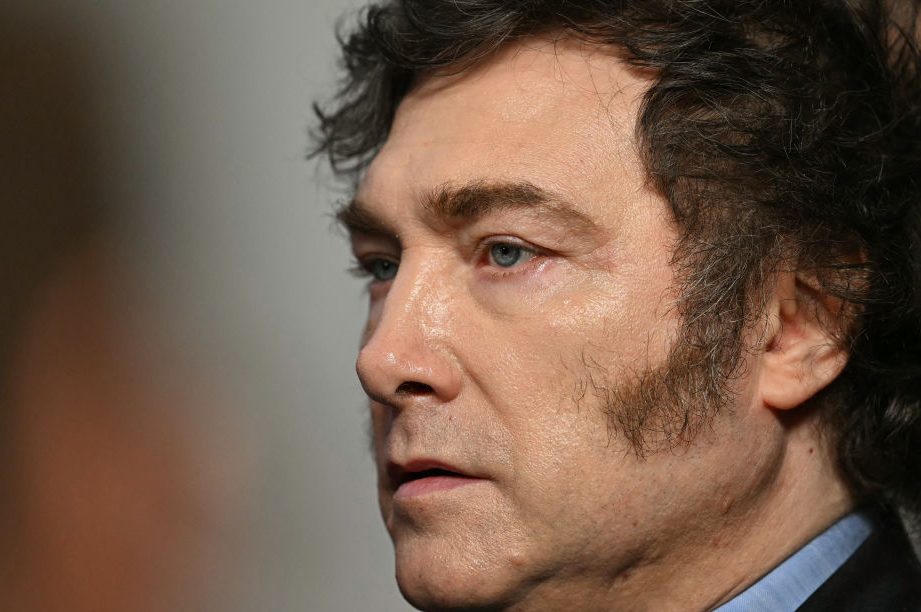Libertarian economist Javier Milei’s smashing landslide victory is the most radical thing to happen to Argentina in decades. But his win portends more than just a free-market revolution on the pampas. It’s just the latest example of a trend we’ve been seeing for decades: the triumph of blue-collar conservative fusionist populism.
Milei is routinely portrayed in the western press as an Argentine Trump with crazy economic policies. There’s some truth to that. His rallies sometimes involve pyrotechnics and he brandishes sputtering chainsaws to symbolically deliver the message that he will take apart the system that impoverishes Argentines. He has called for the elimination of the national bank, and even takes a bat to bash a piñata in the shape of the bank in televised birthday celebrations. He’s also a known devotee of anarcho-capitalist Murray Rothbard. No wonder he’s given establishment types left and right the willies.
But that’s just a variation on the formula that blue-collar conservative populists have been using worldwide for years. Successful rightist populists are always atypical figures with a penchant for dramatics and a flair for rhetoric. That’s as true for Britain’s Boris Johnson and Nigel Farage, architects of Brexit, as it is for Italy’s Prime Minister Giorgia Meloni. Her name means “melons” in Italian, and in the run-up to the 2022 election she showed up in a TikTok video holding two melons in front of her chest. It’s not Shakespeare, but her voters loved it.
Nor do Milei’s extreme policy recommendations hurt his appeal. Populists essentially run against an establishment that has repeatedly and utterly failed to deliver on its promises. The Perónists Milei crushed in November had been the leading force in Argentine politics since General Juan Perón seized power in 1943. They were responsible for the endless cycle of growth, hyperinflation and recession that is depressingly normal there. Center-right governments elected since the return to democracy in 1983 hadn’t been able to change the country’s course. Under these circumstances, it was probably more plausible to the nation’s suffering citizens to argue to abolish the Argentine peso in favor of the dollar than it would have been to counsel conventional conservative economics.
That combination alone might have been enough to bring Milei to power. But he added a cultural element that dismayed many libertarian purists. He is staunchly pro-life, something that still holds appeal in a historically Catholic nation that only legalized abortion in 2020. He also pledges to abolish the new ministry of women, gender and diversity. Cultural conservatives upset at recent trends could back Milei every bit as much as people yearning to stop Argentina’s economic decline.
Populist-conservative election wins always display the same patterns: High income, well-educated areas that historically lean right vote left, while blue-collar, less-educated places that historically lean left swing right. That’s what happened in Brexit and in Boris Johnson’s landslide 2019 victory, in Donald Trump’s 2016 surprise, and even in Australia’s recent referendum on whether to amend the Constitution to give the country’s indigenous population a vaguely conceived “voice to parliament.”
Some elite conservatives simply don’t want change even if that means backing their former opponents. They are usually outweighed by the many non-elite voters who want change so much they will switch sides to get it.
Milei’s win exemplifies this pattern. Perónists have typically won in the post-1983 era by carrying the blue-collar suburbs surrounding the nation’s capital, Buenos Aires, and running up the score in the country’s poor rural regions. Traditional conservatives carry the big cities like Buenos Aires and Córdoba but lose the countryside even when they eke out an occasional win, like Mauricio Macri did in the 2015 presidential election.
Milei shattered this model by winning nearly every rural province along with the cities. He ran twenty points ahead of Macri’s 2015 showing in San Juan and eighteen ahead in Chabut. He topped Macri’s margins by ten points or more in nine of the fourteen rural regions that Macri had lost and beat him by at least four points in each one.
His margins in Macri’s strongholds, on the other hand, were not as strong. He ran nearly eight points behind Macri in Buenos Aires City and did even worse in the most upscale parts of the city, communes 13 and 14. He beat Macri by less than half a point in suburban Buenos Aires and won Córdoba province by only three points more than Macri in 2015. Those three regions cast more than 50 percent of the nation’s votes and are the home to most of its elites. Clearly many traditional conservative elites who backed their party’s candidate in the first round defected to their traditional enemies in the second.
This result simply upends everything we know about Argentine politics. Non-Perónists had only won three presidential elections since 1983, none with more than 51.75 percent. Milei’s near 56 percent has smashed Perónism’s foundation, its support of the common man, to bits.
It also has lessons for Americans and indeed for conservatives around the world, too. Traditional Argentine conservatives started this year looking like the favorites. The incumbent Peronists were so unpopular that neither the president nor the vice president stood for election. Conservatives started well ahead in the polls and avoided division and scandal. Yet they still lost, upstaged by Milei.
Populism, stylistically and substantively, is what blue-collar, formerly center-left voters want. When they get it, as they do with Trump and did with Johnson, they will come out in droves to support it. When conservatives turn away from this model, as anti-Trump Republicans often agitate for and Britain’s Tories have done since deposing Johnson, they depart as quickly as they arrived.
We don’t know whether Javier Milei will be a good president. We do know that the formula he has mastered consistently knocks modern leftism on its knees. Let those who have ears, hear.
This article was originally published in The Spectator’s January 2024 World edition.


























Leave a Reply